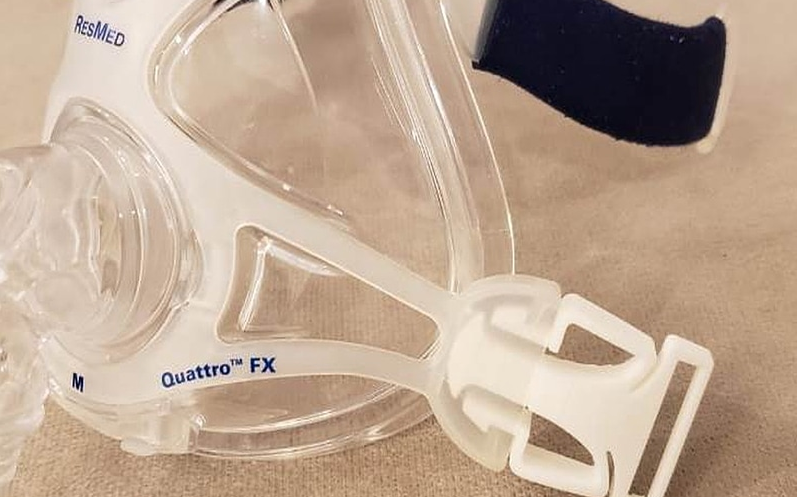

Are you curious about the material your CPAP mask is made up of? It is understandable. Everyone has their reason. Some are wary of the CPAP mask skin irritation that surfaces after prolonged use. Others are more environmentally conscious and can't let something slide by. You will find all the answers for the material and more below. We are going to cover different parts of extensive information:
Primarily, most CPAP masks today are made up of hard plastic. They don't use latex anymore as the material due to skin irritation and other reasons. If it isn't hard plastic, there are CPAP masks available in silicone. However, more than the material of the CPAP mask, the cushion matters more.
CPAP mask cushions are made up of silicone primarily. However, if you have silicone allergy, you can find alternatives such as gel, memory foam, soft rubber, vinyl, and even cloth.
It doesn't matter if you have a nasal mask, full face CPAP Mask, nasal pillows, or some other model. The part of the CPAP mask that will sit on your face and ensure proper fitting will be the cushion. It will ensure comfort and fit for you to ensure that you won't have any problems during the CPAP therapy for sleep apnea.
As the cushion will be in contact with your skin, it will matter for any skin-related problem. Many CPAP users complain about skin irritation, red marks, dry mouth and irritated eyes. Therefore, the proper material selection matters. There are other reasons too.
There are two primary reasons that the material for the mask matters so much:
Proper hygiene is pivotal for uninterrupted CPAP therapy for sleep apnea. It is advised for that users regularly clean their CPAP mask to prevent any infection, skin irritation, or other problems. While daily cleaning can be simple, weekly cleaning of the CPAP machine is important. You will have to clean all CPAP supplies like the hose, the mask and all its components, as well as the machine.
When you know the right material, you can use the right cleaning agents to wash your mask for its longevity.
If you have sensitive skin, it can react to the material with chemical composition. For example, latex reacts most to people and causes different problems for people using CPAP equipment. So, to reduce skin irritation, silicone is the least-reactive and hypo-allergic material known for CPAP masks.
Remember that people who are reactive to the material can develop sores, irritation, red marks and more around their face. So, to reduce irritation, the right material and proper hygiene is pivotal.
Your CPAP Machine also has headgear that it uses. The material won't matter for a CPAP headgear as much as the type of closure it offers. For example, a headgear can have velcro straps or magnetic clips for fitting.
Another consideration is the mask frame. Depending on the mask type, it will vary, but it will mostly be a pliable material that is easy to wash.
Mask's tubing is usually plastic as well, or silicone, for flexibility. You will find them latex free as well.
There are different types of continuous positive airway pressure machines available in the market. If you face symptoms of dry mouth, it can be due to mouth breathing or due to dry air pressure. So, it's better to invest in a CPAP machine with a humidifier.
If you have skin irritation or red eyes, sore sports, etc., then air leaks could be the reason for it. You can try different types of masks for obstructive sleep apnea, like Nasal Masks, Full Face Masks, Nasal Pillow masks, and so on.
Remember that the tight seal of the mask is important and properly fitting, especially near the user's nose and upper lip area. Many users opt for mask liners to prevent direct contact with the mask and to also have a better fitting for the pressurized air to do its work for a good night's sleep. You can give it a try, as well.
Hopefully, you have all the answers you need. Just like a mask style, the material matters a lot. Remember to wash your face before every use, and also the mask after every use if you have oily skin.
Leave a comment